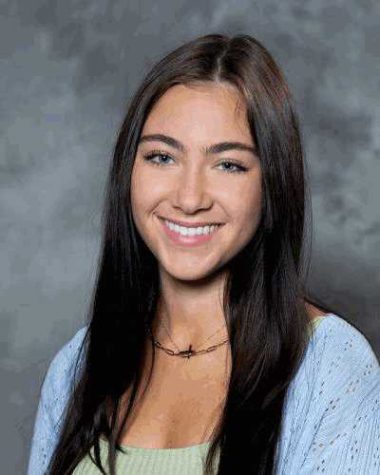Prior to the COVID-19 pandemic, French teacher Amandine Nelaton began every class by stopping at her students’ desks and conversing with them about their goals, passions and lives. Using her positive aura to illuminate the classroom, she was able to put a smile on the faces of students who showed signs of stress. Now, due to the constraints of online learning, Nelaton said she is stuck facing her living room wall, talking to the dismal squares on her computer screen for hours on end.
“I love to exchange energy with my students,” Nelaton said.” It sustains me and my teaching. When you’re in a classroom, you can feel the body language, the posture, the eyes. But when you’re teaching 20 kids on a screen, you can’t tell. You can no longer see the expression in their eyes, and it’s hard to detect the distress, miscommunications and if a kid needs help or is upset. Now, everyday it feels like I’m teaching a wall.”
On Mar. 11, President Rick Commons sent an email to students and teachers informing them of the administration’s decision to suspend in-person schooling because of the rapidly growing threat of coronavirus. Ever since, teachers have conducted classes solely in an online capacity over Zoom and have provided instruction in places such as their living rooms, garages and even out of town or state. Due to this unprecedented educational environment, many teachers, such as sculpture and ceramics teacher Gustavo Godoy, have been forced to completely reconstruct their method of teaching and the content of their curriculum.
Godoy altered the materials used in his course to accommodate virtual schooling, given that many students lack a potter’s wheel and other expensive art utilities found on campus. Similarly, in light of the current racial justice movement, he has changed his curriculum to incorporate topics of equity and activism.
“There’s lots of adjustments we’ve been making in how we’re creating art, in both the materials we use and the things we’re thinking about,” Godoy said. “I start every class by showing an image by an artist. Recently, we looked at an artist from the 1960s who created paintings about police brutality, racism and antisemitism. I felt it was so important to talk about, in 1969 and now.”
Similar to Godoy, Nelaton said she feels extremely lucky to teach a course that enables her to educate her students about cultural awareness and social justice, even in a virtual classroom.
Most teachers, including mathematics teacher Michael Mori, expressed despondency due to the lack of interpersonal connection in the new school environment.
“This [online version of school] is trying to do learning and education, but it’s not school,” Mori said. “School is a social event where we make friends, teachers form bonds with their students and each other and we joke around a lot. It’s hard to do that virtually.”
English teacher Stephen Thompson said he most misses coincidental interactions with students in the hallways.
“It’s really important to my vocation as a teacher to know my students in a robust way,” Thompson said. “So it’s a real drag not to see students outside of class randomly. The thing that I miss most about being in person is not necessarily the classroom experience, but it’s the walking down the hall and talking to people.”
English teacher Lucas Gonzalez is married to Marti Macinnes, a teacher at Marshall Fundamental, a public high school in Pasadena. Because she is required to prepare lessons for four different courses and teach practically nonstop all day with up to 40 kids per class, she said her experience with online school has been both overwhelming and disheartening. She said that the transition onto virtual platforms has disproportionately affected her students due to limited educational resources.
“This year, I have to be very mindful of the discrepancy between my students, more than usual,” Macinnes said. “Some may have their own room to work in, strong Wi-Fi and the ability to go get books and materials, but some do not have that whatsoever. I also have a lot of blank squares and turned off cameras, and there are kids who don’t show up to class or log in and then fall back asleep.”
Due to its immense repository of resources, teachers at the school said the administration has been helpful, conscientious and empathetic of the teachers’ new circumstances. Nelaton said she appreciates their recognition of the teachers’ hard work, as well their proactiveness in facilitating the transition from physical to online learning. Thompson said the school has been generous in supplying the teachers with resources beyond the necessities.
Despite the detriments of online learning, numerous teachers said they have used their extra free time in quarantine to find new hobbies and spend more time with family.
History teacher Peter Sheehy said he has seen some benefits with the online learning.Not only is he able to spend more time with his kids, but he has also made modifications to his teaching style that he will use even after the eventual return to campus. He now hosts more discussion-based lectures, which he said teaches skills essential and applicable to life beyond high school.
“The interpersonal skills of listening and learning from others and presenting are invaluable,” Sheehy said. “If you don’t learn it now, when you get into a college seminar or do group work in business school or law school, you will be lost.”
Many teachers said they want to return to campus and resume normal school life. Nelaton said she’s looking forward to seeing her students and colleagues, all of whom she misses dearly.
“I miss school, and I want to go back,” Nelaton said. “I want to feel the hugs. I want to see kids come to my office and show me their prom dresses, and I want to discuss the movies they’re watching. I miss that. I’m just really eager to get back to school and see everyone.”





































